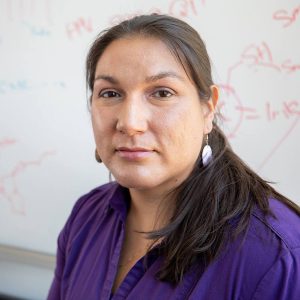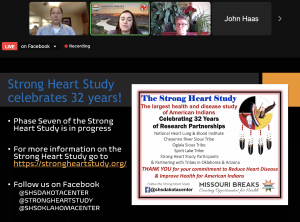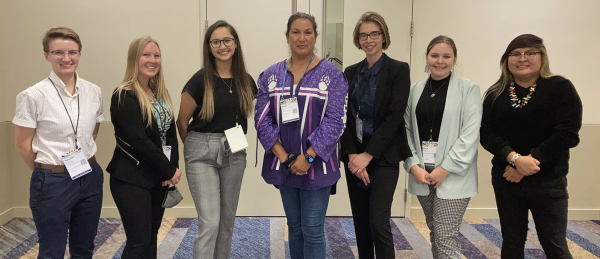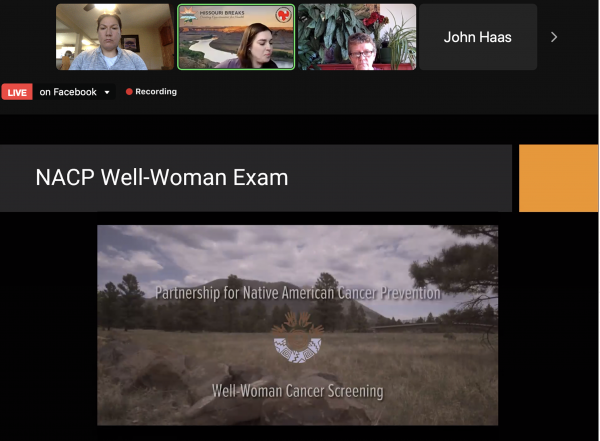Fairness First blog
Researchers voices in health equity
The Fairness First blog represents a space where researchers share with the broader community why health equity research matters to them, how do they connect to health equity, and what is the value of community engagement in the research process.
July 21, 2022
Vaccine design, health disparities and public health research with Dr. Naomi Lee
Associate Professor, Department of Chemistry and Biochemistry

Naomi Lee, PhD, is a tenure-track assistant professor in the Department of Chemistry and Biochemistry at Northern Arizona University. She is also an affiliated faculty member with the National Institute of Health (NIH)-funded Southwest Health Equity Research Collaborative (SHERC), the NIH-funded Native American Cancer Prevention (NACP) partnership, and NAU’s Center for Materials Interfaces in Research and Applications (¡MIRA!).
Her research focuses on novel vaccine development using self-assembling peptides and virus-like particles to target various sexually transmitted infections. Dr. Lee also applies her expertise in biomedical research to improve the health care of American Indians and Alaska Natives through health disparities research, STEM education, and mentoring.
Q. How would you describe your research and why it matters?
A. My research focuses on three areas. The first is biomedical research, where the focus is vaccine design in the lab setting. The second area relates to health disparities* and public health research. Here, we focus on health education around sexually transmitted infections, cervical cancer, and more recently, COVID— and how we serve can Native communities in any of those areas.
In our work, we bring the knowledge from the community to the lab and then back to the community, and we design either vaccines or health education messages to support these communities. The third area is mentoring and research capacity among younger generations. This work explores how cultural identity influences Native youth in staying in the sciences and health sciences fields.
*Health disparities are differences in disease and opportunities for health between populations that come from broader social inequities.

Q. Tell us about a moment in your life when you decided, “This is the type of research I want to do!”
A. It goes back to when I was a postdoc trainee at the University of New Mexico. I was working in the vaccine lab, and I was really excited to be learning more about vaccine design. I was part of the Native Investigator Development program and worked with tribal communities, specifically in the Great Plains.
I was able to apply my knowledge of vaccines and virology to tribal communities working on a project around cervical cancer and human papillomavirus (HPV). That’s the foundation for the mission and vision of my research now at NAU.
Q. What is the element of “unfairness” or “inequity” in the issue you are examining (in the broad context of health and wellbeing)?
A. A lot of our projects are focused on health education with community members as well as healthcare workers. Some of the inequity is a lack of health education available or accessible at a level for community members to understand. For example, during COVID and especially related to COVID vaccines, we worked to deliver health education to healthcare providers in the community about what is actually in the vaccine and address their concerns.
Q. Based on your previous answer, how do you see your work helping to push the needle on this issue toward “fairness” or “equity”?
A. By addressing the mistrust and gaps in education of community members. I think having a Native person that is knowledgeable in these areas helps build trust with community members. It helps to know there is a person that shares their racial ethnic background, even if it’s not specifically their tribal community, who is coming to them with sincerity, trying to provide education, and answer questions that they may have.
This may be at the individual level, where community members reach out to me, or more of a community or even national level. What we’re trying to do is provide education that people can access either through public talks, videos, brochures or any platforms that will reach the community.

Q. How do you want your research to make a difference or change in this world?
A. In the short term, I hope my research will help address mistrust among community members, whether it is around vaccines or other health inequities that our Native people are facing.
In the long term, I want to design a vaccine that will be helpful for our community and oversee a clinical trial, making sure that Native people are included and represented in all ways.

Q. What is one important lesson you’ve learned about yourself and this region through your research?
A. I have lots to learn myself. I’m not from this area, I’m from the Northeast. Cultural norms are not the same. How to approach different communities here and do it respectfully is something I want to continue to learn and get better at working with Native communities across the US. Even though I’m a Native person, I still have to walk that fine line to gain the trust of Native communities.
Q. Is there a global context you can apply to your research? How is your research connected to situations/advancements happening on a global scale?
A. I’m in the Army Reserve and I was recruited to my current unit in the Army because of my experience working with Indigenous populations, and now with COVID. My military position is working with the Indigenous communities from the Pacific Islands.
I’ve been to Palau to meet with their leadership, including their president, to talk about biomedical research, building capacity and infrastructure within their community, and how we can start tackling some of the issues. They’re seeing the same health inequities that exist in our Native people because they have very similar experiences, such as boarding schools and having to rely on commodities.
My goal is to share ways that we have tackled these inequities through a cultural lens and to connect them to other Indigenous researchers based on their overlapping focuses.
You can connect with Dr. Lee at Naomi.Lee@nau.edu.
Back to the main Fairness First Campaign page.
